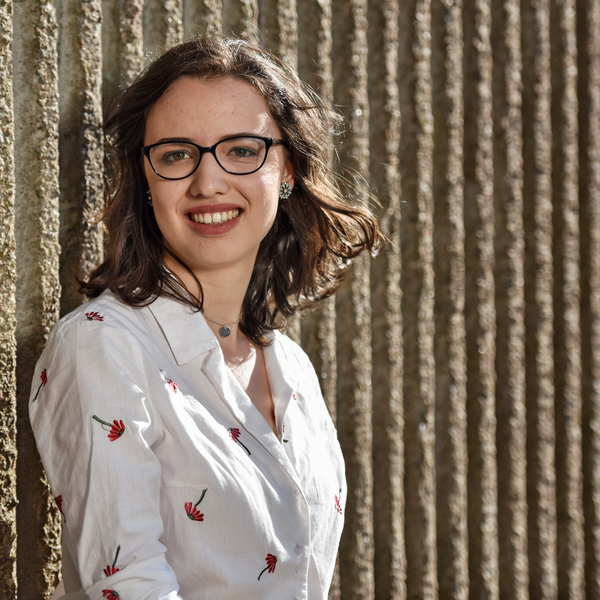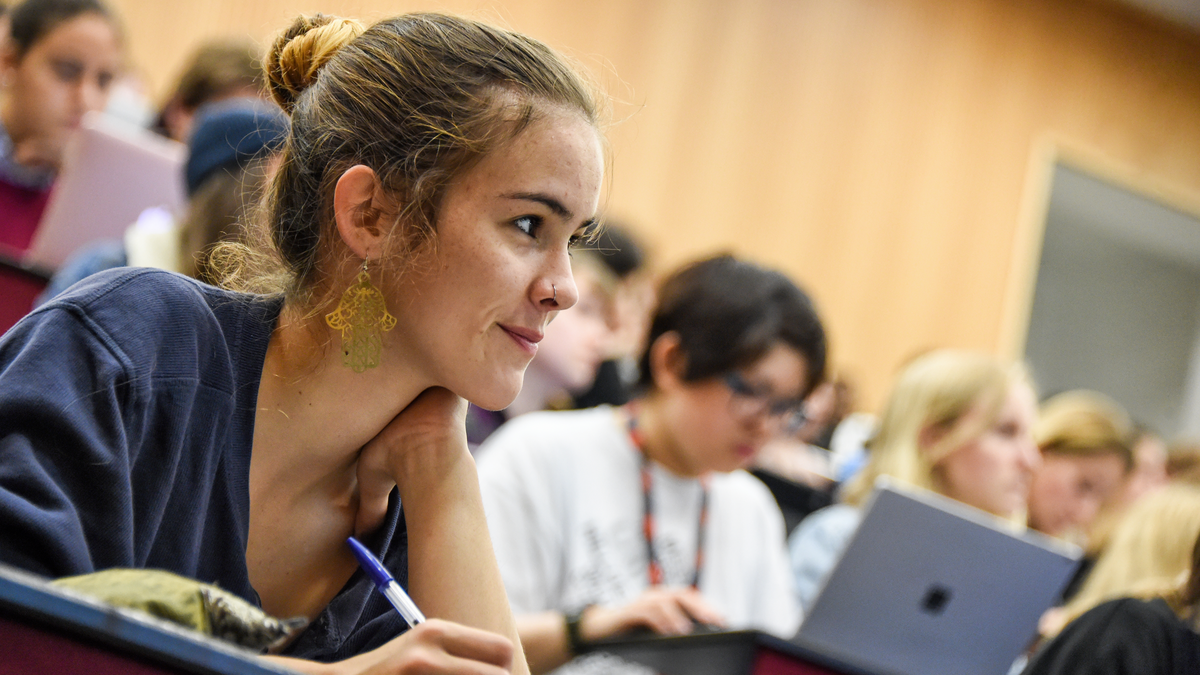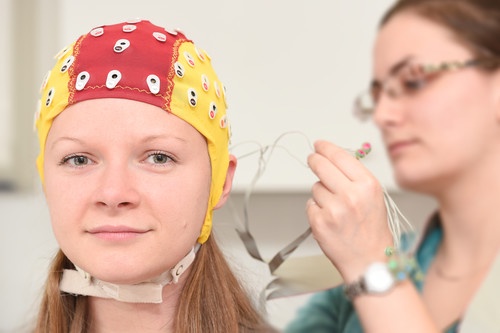Darja Wischerath

Are you interested in what makes people tick? Do you want to understand why people do the things they do? If you are fascinated by people's behaviour this programme is for you.

As the study of mental processes and behaviour, Psychology is interested in what makes people tick, why they do the things they do and what happens when it goes wrong?
Psychology covers a wide range of theoretical and applied disciplines; in our degree you will study how we think, perceive, develop, and change. Importantly you will also learn how to “do” psychology and will receive rigorous training in the methods that are used to study human behaviour and the mind.
Our psychology department provides a supportive and stimulating environment for undergraduate students. All of our degrees are accredited by the British Psychological Society (BPS) guaranteeing an internationally recognised high standard of education.
Psychologists can work in clinical and organisational settings. You may support children and families, adults towards improved mental health, winning and endurance in sports, profiling, or counselling, HR, and behavioural roles. We are all intrigued by self-awareness, why we behave as we do.
The Different Degrees
Psychology at Aberdeen is offered as a BSc or a MA degree. The Psychology element of either programme is exactly the same and they are both equally valued as Psychology degrees. MA students have typically done arts and humanities subjects at school. In the first 2 years within the MA you will be able to take any arts course (e.g., sociology, philosophy, languages) and any science courses that you have the pre-requisites for (many of the science courses require you to have e.g., biology at higher/A-Level). BSc students typically have school qualifications in science subjects and do subjects like maths, biology and chemistry alongside psychology in the first 2 years.
There is a British Psychological Society (BPS) accredited Honours degree and a Designated degree in Psychology. Application for entry to Honours occurs at the end of second year, and is based on academic performance achieved during second year.
15 Credit Points
PS1009 introduces you to major concepts and theories in psychology to provide you with a strong understanding of the human mind and behaviour. You will attend lectures on biological, social and cognitive psychology and participate in tutorials where you will work with peers to discuss topics related to the lecture materials. Studying psychology is beneficial to a wide range of careers including management, education, and counselling, to name a few.
15 Credit Points
PS1011 is the perfect combination of subject-specific knowledge and transferable skills. In weekly lectures and practicals you will learn how various research methods are applied across a variety of Psychology sub-fields. As you do so, you will learn to read scientific articles and will begin to critically evaluate them. Knowledge and skills will be practiced and assessed using a variety of methods: Critical reviews, close-reading exercises and oral presentations. The strong emphasis on developing critical thinking skills means that this course will be a valuable addition to any degree.
15 Credit Points
PS1509 introduces you to major concepts and theories in psychology to provide you with a strong understanding of human mind and behaviour. You will attend lectures on evolution & emotion, lifespan development, and sensation & perception and participate in tutorials where you will work with peers to discuss topics related to the lecture materials. Studying psychology is beneficial to a wide range of careers including management, education, and counselling, to name a few.
15 Credit Points
PS1511 builds onto PS1011. You will learn more about research methods in Psychology through lectures, practicals and taking part in research. You will also learn how to set up and conduct a Psychology study yourself. Part of the lectures will focus on statistics, to equip you with the skills to analyze and interpret your own data. In doing so, you will also learn about the role of ethics in research. The main assessments are two research reports and and MCQ test about the lectures.
This course, which is prescribed for level 1 undergraduate students (and articulating students who are in their first year at the University), is studied entirely online, takes approximately 5-6 hours to complete and can be taken in one sitting, or spread across a number of weeks.
Topics include orientation overview, equality and diversity, health, safety and cyber security and how to make the most of your time at university in relation to careers and employability.
Successful completion of this course will be recorded on your Enhanced Transcript as ‘Achieved’.
Select a further 60 credit points from courses of choice.
15 Credit Points
This course builds on the material covered in the 1st-year courses, expanding on psychology’s concepts and theories. The course covers three core areas of psychology: language and cognition, perception, and individual differences.
15 Credit Points
This course introduces students to fundamental concepts and methods in psychological research and data analysis. Lectures cover distributions and probability, null hypothesis significance testing, t-tests, chi-square tests, and correlations. Practical classes involve the application of these methods to research examples from different areas of psychology, using the statistical software package SPSS.
15 Credit Points
This course builds on the material covered in the 1st-year courses, expanding on psychology’s concepts and theories. The course covers four core areas of psychology: social psychology, behavioural neuroscience and developmental psychology.
15 Credit Points
This course covers a broad range of data collection and analysis methods used in psychological research. Lectures cover survey and observational methods, regression analysis, ANOVA, and qualitative research methods. Practical classes involve the application of these methods to research examples from different areas of psychology.
Select a further 60 credit points from courses of choice.
15 Credit Points
The main aim of this course is to help students prepare, evaluate and run their own Psychological research. As such this is a ‘hands-on’ course, where students will have the opportunity to conduct a small qualitative research project and practice using SPSS for a variety of statistical analyses. The course provides a thorough grounding in qualitative and quantitative research methods through a lecture series. Specific topics covered in this course include: verification and falsification of results; ANOVA and qualitative research strategies.
15 Credit Points
Psychological assessment is used by chartered psychologists in a number of areas, including clinical, occupational and forensic applications. The aim of this course is to introduce students to psychometric theory, real life applications of psychological assessment and the legal and ethical issues surrounding test administration.
Topics covered on this lecture based course include: IQ and mood assessment; clinical neuropsychological tests of cognitive dysfunction and memory; assessment of dementia and forensic aspects of assessment (legal malingering).
An ideal course for students intending to secure a career in applied psychology.
15 Credit Points
Interaction with the world around us involves perceptual processing using our three main senses : visual (seeing), auditory (hearing) and haptic (touch). The aim of this course is to consider a range of approaches to human perception, from historical beginnings to recent innovative research.
Topics covered include: colour perception; face recognition; perception of pain and age related changes in perception. Students will also engage in guided debate with their peers regarding media portrayal of recent research findings.
This course is produced by academics that specialise in this field, ensuring the most up-to-date and relevant lecture material.
15 Credit Points
This course aims to provide students with a good understanding of the biological basis of behaviour and cognition. The course is split into two sections, each featuring 5 lectures. Section 1 focuses on psychopharmacology, which is the investigation of the effect of medication on normal and abnormal brain function. Section 2 focuses on neuropsychology, examining what can be learnt about psychological processes from studying patients with brain damage.
Specific topics that will be covered include: neurotransmitters; drug effects; psychedelic drugs; impaired object and face recognition; amnesia; and disorders of motor control.
15 Credit Points
This course builds on the skills already developed through participation in Methodology A. Similar to that course the aim is to help students prepare, evaluate and run their own Psychological research. As such this is a ‘hands-on’ course, where students will have a second opportunity to conduct a small research project and practice using SPSS for a variety of statistical analyses. The course also builds on the thorough grounding in qualitative and quantitative research methods provided in Methodology A through a second lecture course. This course also features workshops on employability, providing students with information on career planning, networking etc.
15 Credit Points
Social Psychologists explore the psychological factors that influence individual behaviours within social situations. As such, the aim of this course is to provide students with an introduction to the range of topics within experimental social psychology, with a defined focus on social cognition.
Topics covered within this lecture based course include: Stereotypes; social perception and action; self-control; consciousness and mimicry.
This course provides a scientific explanation for social phenomena, making it ideal for students with an interest in individual and group behaviour.
15 Credit Points
The aim of this course is to consolidate and extend students’ knowledge of a number of core areas of developmental psychology, focusing on the age range of young children (3 years) to adolescence. This course will examine both historical and contemporary issues and findings in (1) cognitive development and (2) social-emotional development. In one half of the course students will evaluate how some main types of memory undergo developmental changes, and how cognitive plasticity develops. In the other half students will evaluate the development of aggression and its risk factors, and gain a deeper understanding of the role of play in typical and atypical development of social interaction with a focus on autism. There will also be opportunity to learn about some intervention programmes aimed at improving cognitive and socio-emotional skills in childhood. The broad range of developmental topics makes this an ideal course for anyone with interest in working with children.
15 Credit Points
The memory component of this course aims to introduce students to the main theoretical components of memory (working and autobiographical memory). Psychological theories of forgetting and eyewitness memory will also be discussed.
The second component of the course, language, will introduce students to the key issues in psycholinguistics. This will include assessment of sentence processing, analysis of the processes underlying language production and factors that influence communication in different settings.
The assessment of multiple approaches within both research areas will provide all students with a good basis for developing critical thinking skills.
30 Credit Points
This course constitutes the final-year thesis for the single honours Psychology degree. The thesis is an empirical research project, where the student collects and analyses data in answer to a research question. The thesis itself begins in September and the final draft of the thesis is handed in for assessment at the end of the second term. The School has an international-level research culture and the final-year projects offer the students an opportunity to be involved in that culture. A number of student projects have contributed towards research publications.
Plus at least 60 credit points from Level 4 Psychology courses and 30 credit points from courses of choice.
A graduating curriculum for the Honours programme must include 90 credit points from Level 4 courses.
We will endeavour to make all course options available; however, these may be subject to timetabling and other constraints. Please see our InfoHub pages for further information.
The School of Psychology provides an exciting and vibrant research-led learning environment for students. We combine traditional teaching methods with innovative techniques to deliver an enhanced undergraduate experience.
Teaching
Assessment
Support
Students are assessed by any combination of three assessment methods:
The exact mix of these methods differs between subject areas, year of study and individual courses.
Honours projects are typically assessed on the basis of a written dissertation.
The information below is provided as a guide only and does not guarantee entry to the University of Aberdeen.
SQA Highers
Standard: AABB
Applicants who have achieved AABB (or better), are encouraged to apply and will be considered. Good performance in additional Highers/ Advanced Highers may be required.
Minimum: BBB
Applicants who have achieved BBB (or are on course to achieve this by the end of S5) are encouraged to apply and will be considered. Good performance in additional Highers/Advanced Highers will normally be required.
Adjusted: BB
Applicants who achieve BB over S4 and S5 and who meet one of the widening access criteria are guaranteed a conditional offer. Good performance in additional Highers/Advanced Highers will be required.
More information on our definition of Standard, Minimum and Adjusted entry qualifications.
A LEVELS
Standard: BBB
Minimum: BBC
Adjusted: CCC
More information on our definition of Standard, Minimum and Adjusted entry qualifications.
International Baccalaureate
32 points, including 5, 5, 5 at HL.
Irish Leaving Certificate
5H with 3 at H2 AND 2 at H3.
Entry from College
Advanced entry to this degree may be possible from some HNC/HND qualifications, please see www.abdn.ac.uk/study/articulation for more details.
SQA Highers
Standard: BBBB
Applicants who have achieved BBBB (or better), are encouraged to apply and will be considered. Good performance in additional Highers/ Advanced Highers may be required.
Minimum: BBB
Applicants who have achieved BBB (or are on course to achieve this by the end of S5) are encouraged to apply and will be considered. Good performance in additional Highers/Advanced Highers will normally be required.
Adjusted: BB
Applicants who achieve BB over S4 and S5 and who meet one of the widening access criteria are guaranteed a conditional offer. Good performance in additional Highers/Advanced Highers will be required.
Foundation Apprenticeship: One FA is equivalent to a Higher at A. It cannot replace any required subjects.
More information on our definition of Standard, Minimum and Adjusted entry qualifications.
A LEVELS
Standard: BBC
Minimum: BCC
Adjusted: CCC
More information on our definition of Standard, Minimum and Adjusted entry qualifications.
International Baccalaureate
32 points, including 5, 5, 5 at HL.
Irish Leaving Certificate
5H with 3 at H2 AND 2 at H3.
Entry from College
Advanced entry to this degree may be possible from some HNC/HND qualifications, please see www.abdn.ac.uk/study/articulation for more details.
The information displayed in this section shows a shortened summary of our entry requirements. For more information, or for full entry requirements for Arts and Social Sciences degrees, see our detailed entry requirements section.
To study for an Undergraduate degree at the University of Aberdeen it is essential that you can speak, understand, read, and write English fluently. The minimum requirements for this degree are as follows:
IELTS Academic:
OVERALL - 6.0 with: Listening - 5.5; Reading - 5.5; Speaking - 5.5; Writing - 6.0
TOEFL iBT:
OVERALL - 78 with: Listening - 17; Reading - 18; Speaking - 20; Writing - 21
PTE Academic:
OVERALL - 59 with: Listening - 59; Reading - 59; Speaking - 59; Writing - 59
Cambridge English B2 First, C1 Advanced or C2 Proficiency:
OVERALL - 169 with: Listening - 162; Reading - 162; Speaking - 162; Writing - 169
Read more about specific English Language requirements here.
The University of Aberdeen International Study Centre offers preparation programmes for international students who do not meet the direct entry requirements for undergraduate study. Discover your foundation pathway here.
You will be classified as one of the fee categories below.
| Fee category | Cost |
|---|---|
| RUK | £9,250 |
| Tuition Fees for 2024/25 Academic Year | |
| EU / International students | £20,800 |
| Tuition Fees for 2024/25 Academic Year | |
| Home Students | £1,820 |
| Tuition Fees for 2024/25 Academic Year |
Students from England, Wales and Northern Ireland, who pay tuition fees may be eligible for specific scholarships allowing them to receive additional funding. These are designed to provide assistance to help students support themselves during their time at Aberdeen.
Further Information about tuition fees and the cost of living in Aberdeen
View all funding options in our Funding Database.
The School of Psychology at Aberdeen has an employability programme that provides support throughout your degree and beyond, helping to ensure our graduates get those all-important jobs and post-graduate study opportunities. Perhaps the most important aspect of this is our internship programme:
Internships: A range of Psychology-specific internships are available to fourth year students, including placements with Forensic, Clinical and Educational Psychologists. These internships provide vital experience that will ensure you stand out to future employers.
Our employability programme also includes the following:
The School of Psychology provides an exciting and vibrant research environment. Our degrees are taught by a range of experts across our 3 research themes: Cognition, Perception and Attention and Social Cognition.
You will be taught by a range of experts including professors, lecturers, teaching fellows and postgraduate tutors. Staff changes will occur from time to time; please see our InfoHub pages for further information.
There is a range of specialised laboratories including those for brain imaging analysis, eye movement recording, movement analysis and visual neuroscience.

This facility consists of several spacious rooms that house electroencephalographic (EEG) equipment and sound-attenuated, shielded testing booths.

The School of Psychology has four in-house eye trackers. The Eyelink 1000 system allows the recording of eye gaze at a sampling rate of 1000 Hz.

The University’s award winning Sir Duncan Rice Library is listed in the “Top 20 spellbinding University libraries in the World”. It contains over a million volumes, more than 300,000 e-books and 21,000 journals.
Find out moreDiscover Uni draws together comparable information in areas students have identified as important in making decisions about what and where to study. You can compare these and other data for different degree programmes in which you are interested.